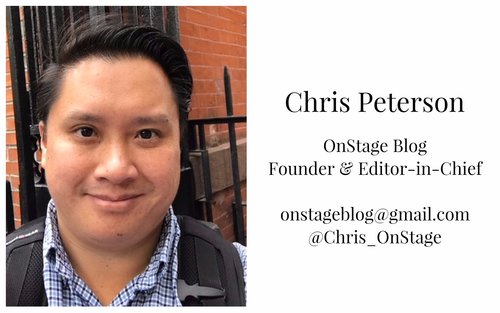Should There Be All-White Productions of "Hairspray"?
Imagine that Hairspray is being produced in a local theatre near you. And after the auditions were completed, you notice that the show has an all-white cast. How would you react? Would you be angered? Insulted? Confused?
While it might be questionable that Hairspray would be cast this way, it's something that happens fairly regularly and the reason is that in large part, it's actually endorsed by the creators of the show.
While the use of blackface is strictly prohibited because it's abhorrent. When all-white casts perform the piece, they typically use different colored clothing to mark the differences between white and black.
According to the licensing material from Music Theatre International, there are no race restrictions on any of the characters in the show. There is also specific material which does address the use of non-traditional casting for the roles. It reads:
The use of make-up to portray black characters in your production (e.g., blackface) is not permitted under this Production Contract. By signing below, you agree to inform the director of your production that such use of makeup is strictly prohibited.
If your production of Hairspray features actors who are portraying characters whose race may be other than their own, you may elect to include the below letter from the creators of Hairspray in your program. You are not permitted to edit the letter in any way.
Dear Audience Members,
When we, the creators of HAIRSPRAY, first started licensing the show to high-schools and community theatres, we were asked by some about using make-up in order for non-African Americans to portray the black characters in the show.
Although we comprehend that not every community around the globe has the perfectly balanced make-up (pardon the pun) of ethnicity to cast HAIRSPRAY as written, we had to, of course, forbid any use of the coloring of anyone’s face (even if done respectfully and subtly) for it is still, at the end of the day, a form of blackface, which is a chapter in the story of race in America that our show is obviously against.
Yet, we also realized, to deny an actor the chance to play a role due to the color of his or her skin would be its own form of racism, albeit a “politically correct” one.
And so, if the production of HAIRSPRAY you are about to see tonight features folks whose skin color doesn’t match the characters (not unlike how Edna has been traditionally played by a man), we ask that you use the timeless theatrical concept of “suspension of disbelief” and allow yourself to witness the story and not the racial background (or gender) of the actors. Our show is, after all, about not judging books by their covers! If the direction and the actors are good (and they had better be!), you will still get the message loud and clear. And hopefully, have a great time receiving it!
Thank You,
Marc, Scott, Mark, Tom & John
While the creative team surely has good intentions with this statement, the problem is, that without any sort of restriction or suggestion of how casting should go, it does give theatres permission or leeway to "whitewash" these productions and cast white actors or other races over black actors for these roles.
Denying white actors the chance to play black roles isn't a form of racism, it's doing the storyline justice considering its themes. Hairspray is largely about racism, segregation and civil rights in the 1960's, and there isn't enough "suspension of disbelief" for those themes to feel comprehendible if Seaweed and Motormouth Maybelle are portrayed by white performers. I can only imagine what a performance of "I Know Where I've Been" would look like with a white Maybelle.
Many directors who choose to cast white actors in black roles feel that it can be a teachable moment to gain a better understanding of the struggles of that race. I would argue, however, that those lessons can be learned just as well without having white actors inhabiting those roles. If racism and segregation still, somehow, confound you, then simply being cast in or viewing Hairspray would be helpful. You don't need to play the role of a black person to be "enlightened" on racism.
I would also argue that because the show deals directly with the way Black people were treated in 1960's Baltimore, it would be just as incorrect to see a Latin or Asian person playing those roles as a white person.
While Tom Meehan, Marc Shaiman, Scott Wittman, John Waters and the late, Mark O’Donnell were certainly trying to be respectful in the portrayal of these characters, that respect cannot stop at the accuracy of who plays them. They created a popular piece of musical theatre which provides opportunities for black performers to be cast. That's something that needs to be championed, not made optional. With all due respect to the creators of the show, I don't expect a group of white men to fully understand nuances of whitewashing.
So even though the creative team gives permission to essentially "whitewash" their own musical, should theatres follow suit? I say no. While in the past I have argued that author intent should always be followed, when that intent is incorrect, it is on the theatres to do what it right.
There is an extra level of due diligence theatres need to perform to cast roles of color. I've written in the past about the steps that need to be taken in order to cast these shows racially correct. When all else fails, you need to change the show. I would rather see an all-white role season before seeing white actors cast in Black, Asian or Latinx roles.
Producing shows with roles of color can be more challenging, but that's why directors and producers need to take the extra step to portray these roles correctly, even if the author's intent is incorrect.
